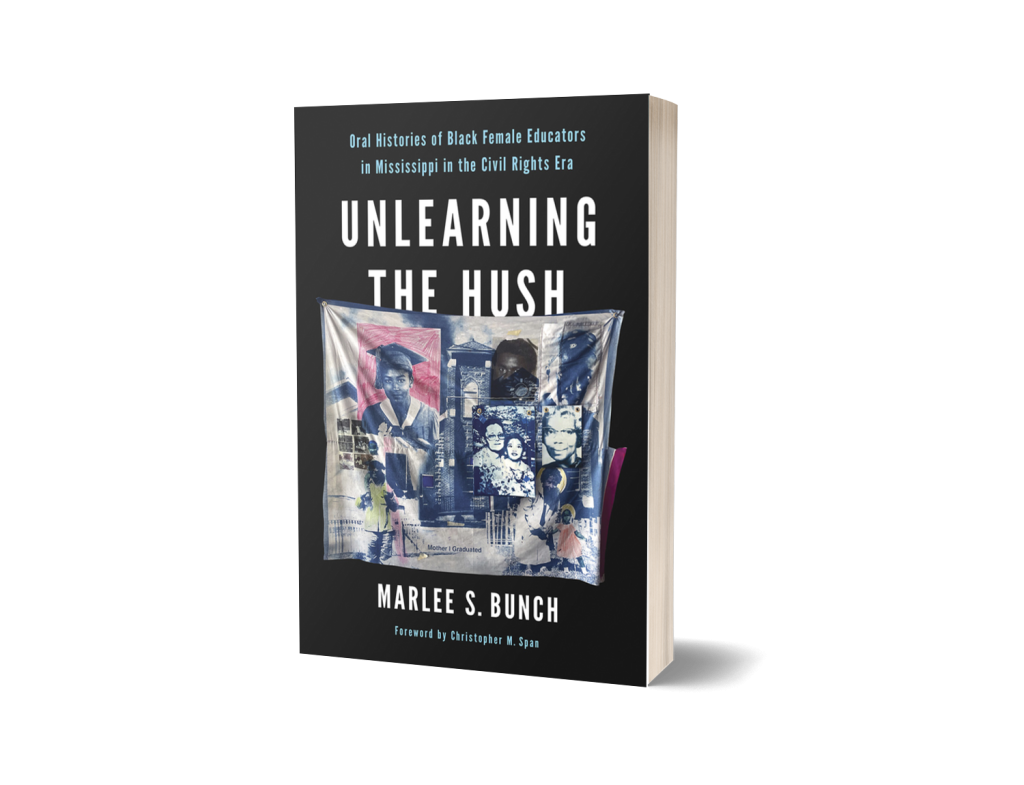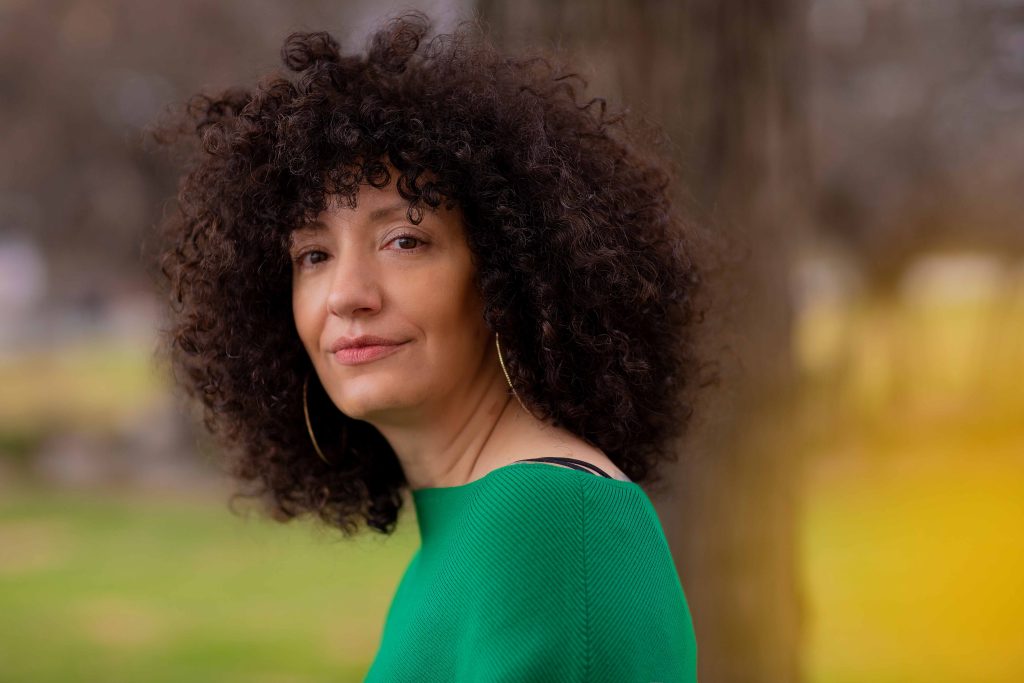Marlee S. Bunch, author of Unlearning the Hush: Oral Histories of Black Female Educators in Mississippi in the Civil Rights Era, answers questions about her new book.

Q: Why did you decide to write this book?
My grandmother was a teacher in Hattiesburg, Mississippi, so this work is deeply personal to me. As an educator myself, I wanted to explore how the efforts of past generations of teachers can inform 21st-century classrooms. Beyond that, I felt a responsibility to ensure that the oral histories of Black female educators were preserved—woven into the historical record and documented for future educators and generations to come.
I also wanted this book to be visually rich, incorporating images and artifacts that bring the participants’ stories to life. Making their presence tangible through visual storytelling is especially crucial in a time when history is at risk of being erased.
At its core, this work is about honoring the everyday people who were, and continue to be, changemakers and trailblazers. Their stories remind us to carry their legacy forward, to raise our voices for justice, and to recognize the profound role that storytelling plays in shaping our understanding of history and ourselves.
Q: What is the most interesting discovery you made while researching and writing your book?
There were so many interesting discoveries while researching and writing this book. Learning about the tactics used to stave off integration in Hattiesburg, Rosenwald schools, Freedom Summer, SNCC (Student Non-Violent Coordinating Committee), and some of the ways that educators worked around the lack of resources they were given, were all so interesting and valuable. However, the most essential aspect of the research was connecting with the participants I interviewed. Bearing witness to their stories and lives, was transformational. This research connected me to historians like Secretary Lonnie Bunch and Christopher Span, and the educators and students at the center of education and activism in the 1950s-1970s in Hattiesburg, Mississippi. Hearing the stories of educators and their students was the part of the research that left a lifelong impression. Learning about Mrs. Ellie Dahmer, Charles Cooper, and Dr. Joyce Ladner, among others, provided me with a sense of pride, as I was able to understand the long line of legacy that my teaching is connected to.
Q: What myths do you hope your book will dispel or what do you hope your book will help readers unlearn?
I hope this book deepens readers’ understanding of the invaluable contributions of Black educators and students who fought for equity and justice during the Freedom Movement. Unlearning the Hush focuses specifically on the years 1954–1970—a period bookended by the landmark Brown v. Board of Education decision in 1954 and the delayed desegregation of Hattiesburg, Mississippi, in 1970.
This book challenges the oversimplified narrative that segregated Black schools and communities were defined solely by a lack of resources and hardship. While these struggles were real, they coexisted with remarkable advancements, rich learning environments, and a deep sense of community—one that nurtured students and empowered them to thrive despite systemic barriers.
Hattiesburg produced many influential leaders and activists, including Ellie Dahmer, Dolores Goins, the Ladner sisters, and many others. Their emergence was not incidental but a direct result of dedicated educators, families, and community members who prioritized civic engagement and self-empowerment. Teachers like Mrs. Jemye Heath—my mother’s middle school teacher, who was 98 when I interviewed her—were deeply invested in their students’ growth. They fostered both academic excellence and emotional well-being, understanding that true education must nurture the whole child.
I hope this book helps dismantle the misconception that education has not been a central focus in Black families and communities or that Black history is primarily one of tragedy. Our history is complex—layered with struggle, yes, but also with resilience, brilliance, and beauty. Through the voices of those who lived it, I hope these stories serve as a reminder of both our personal and collective strength.
Q: What is your advice to scholars/authors who want to take on a similar project?
My advice to scholars and authors embarking on similar projects is to embrace collaboration and think creatively. Expanding our understanding of what constitutes “scholarship” and who gets to contribute is essential to producing meaningful, inclusive work.
From my experience, collaboration offers invaluable benefits—it allows for multiple perspectives, helps identify gaps in knowledge, and reveals insights I might not have considered on my own. Engaging with others enriches the research process and strengthens the depth of our work.
I also encourage scholars to seek guidance from mentors. The support and belief of my mentors played a crucial role in fostering my confidence and deepening my commitment to my research. Learning from esteemed scholars like Dr. Christopher Span and Dr. Joyce Ladner not only shaped my work but also expanded my understanding of the field in ways I could not have achieved alone.
Q: What do you like to read/watch/or listen to for fun?
I enjoy reading books by a wide array of authors and poets: Tiya Miles, Vanessa Siddle Walker, Claudia Rankine, Cole Swensen, Victoria Chang, Imani Perry, Ariana Benson, and so many others. It was an incredible honor to have so many of the poets I admire in Unlearning the Hush. I enjoy most genres, and as an English teacher by training, I have a wide range of favorites—children’s books, young adult novels, mythology, and flash fiction—I appreciate it all. My taste in music includes an equally broad range: everything from Aretha Franklin, Stevie Wonder, Drake, Kendrick Lamar, 90s R&B, Rap, and more. Who doesn’t love a playlist that goes from Tupac to Hall and Oates, with a bit of Fleetwood Mac and Frank Ocean?

Marlee S. Bunch is an educator, author, and scholar.
